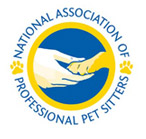Professional pet business mentor, coach and consultant, Kristin  Morrison, recently wrote on her Facebook page about an article that recently appeared in the New York Times called, “Lost Dog and Other Pet Sitting Disasters.” It was a lighthearted attempt to portray ‘pet sitters’ as bumbling amateurs taking care of the neighborhood dog or cat.
Morrison, recently wrote on her Facebook page about an article that recently appeared in the New York Times called, “Lost Dog and Other Pet Sitting Disasters.” It was a lighthearted attempt to portray ‘pet sitters’ as bumbling amateurs taking care of the neighborhood dog or cat.
Pet Sitters International (PSI) responded to the article by offering a reality check. Pet sitting is a professional business. Unfortunately, it’s an unregulated business, which means anyone or their 12-year-old-kid can pet sit your animal. It’s time for our industry to educate the general public the difference between a professional pet sitter and hobbyist.
To work as a professional pet sitter, you’re trained and certified, carry insurance, are bonded and are willing to undergo a background check. Training is not a one course deal. Training is on-going endeavor. A professional pet sitter is trained in first aid, end of life issues, senior care, puppy care, common diseases, canine/feline behavior, parasite control, nutrition, grief counseling, exotic pet care, farm pet care, small animals pet care, sanitation and basic grooming. Certification is renewed every 3 years by accumulating 30 additional Continuing Education Units (CEUs).
Professional pet sitting is a very personal business. A professional pet sitter is given the sole responsibility of caring for a family’s pet. In most cases, that pet is considered as important as any one member of a family. In some cases, that pet is the family, meaning the individual or couple chose to raise pets in the place of children.
If you don’t think people grieve just as hard when losing a pet as they do when losing a human loved one, think again. When a professional pet sitter takes the job of a caring for a family’s pet, that pet sitter is essentially making a promise. She/he is promising the pet will be as safe and secure under the care of the pet sitter as the pet would be under the owner’s care. We are professionally trained in order to ensure that promise. We also have real world experience when having to make immediate judgement calls during natural disasters, unexpected illnesses or accidents.
By definition, hobbyists do not make the same commitment to their customers as professional pet sitters. Typically, they are not formally trained, nor do they carry insurance. In fact, most hobbyists don’t even have a web site, which means you don’t know anything about them. And most importantly, they make no guarantees. It’s merely a hobby. A hobbyist is no different from the next door neighbor or 18-year-old kid whom you beg to take care of your pet while you’re on vacation.
As an owner of a pet, you need to make a judgement call as to who you feel more secure in caring for your pet while you’re away from home. I hope this article has given you additional information that you can use when making the important decision on who you should entrust to care for a precious member of your family.

















It’s interesting that pet sitting is harder than people think. My daughter was wanting to go into that, so maybe she could benefit from some lessons. It would be bad if she tried to do it only to find she didn’t know how to take care of them!
Unfortunately, there are no formal lessons on pet sitting. However, your daughter can be certified through NAAPS or PSI, the two largest pet sitting professional associations in the industry.